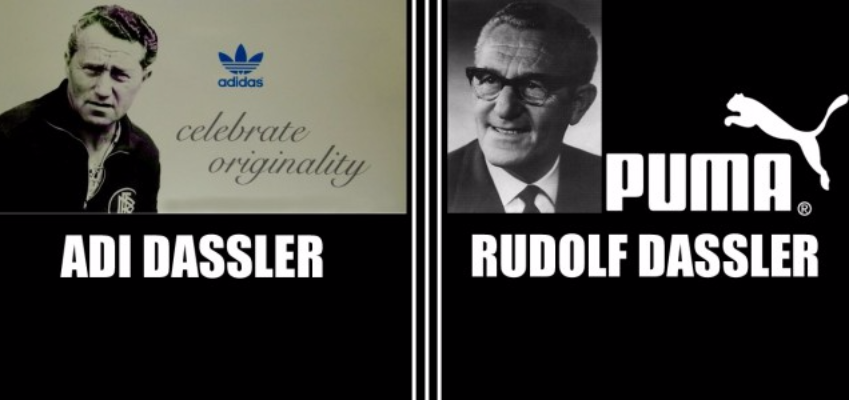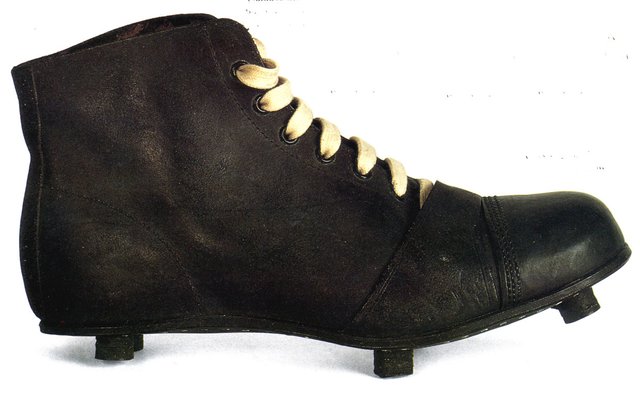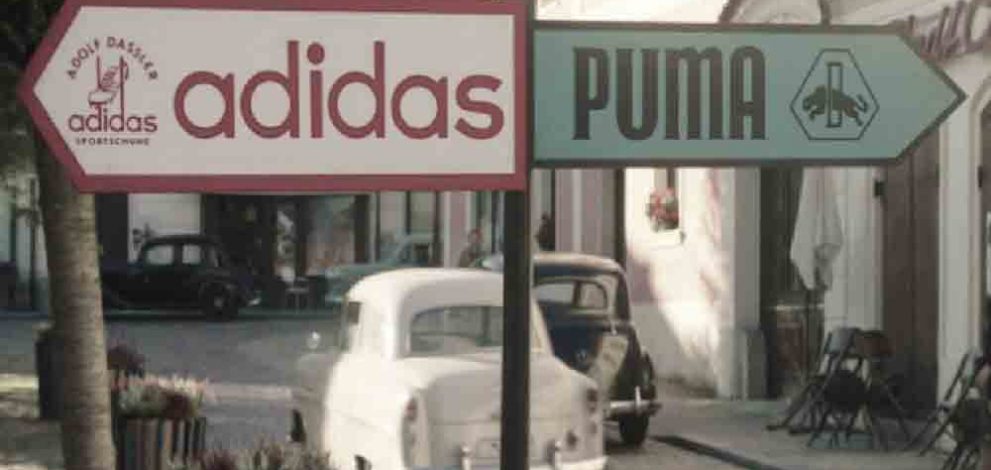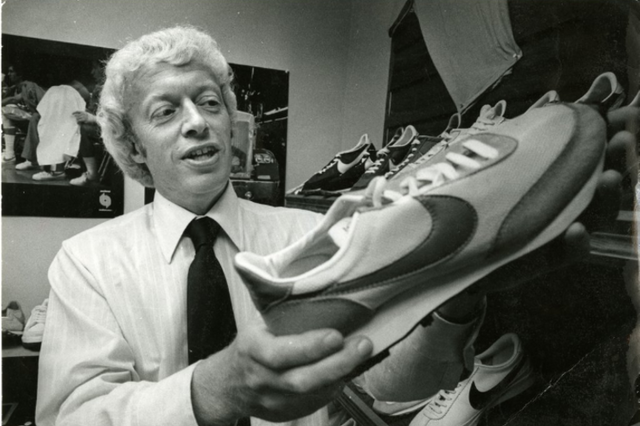ADIDAS and PUMA: The Dassler brothers rivalry
What happens when the rivalry between two brothers (Germans) is so great that they no longer can work together? They do not fight, but they set up two well-known companies that seem to pull their vitality out of the constant competition they are in.
Adidas and Puma - ranked second and third in the sports equipment manufacturers' list - are the creation of the brothers Adi (Adolf) and Rudi (Dassler), who are shoemakers from Herzogenaurach, Bavaria. Thanks to an invention that seems today as commonplace as warm water - the crampons - they have conquered the world of sport before World War II.
But because of this war and their political choices, Dassler brothers have come to hate so hard they broke into two family businesses.
The first steps
How did two Bavarian boots makers get to conquer the world? They began in the 20s, in a laundry room, behind the family home. Here, the two brothers, passionate about sports and leather, gave birth to one of the greatest inventions in the sport world.
Dassler brothers formed the perfect team - economists say today - and for a long time they worked together without any problems. While Adi focused on "creation" - how to make shoes stronger, lighter and more efficient - the big brother, Rudi, was tasked with marketing because he was "good-in-the-mouth" and savvy . In 1925, they began selling the crampons - the invention of Adi Dassler - for soccer players and runners. Since 1931, they have expanded their business to tennis, another extremely popular sport in a Germany obsessed with physical condition.
Adi and Rudi were perfectly matched in their shoes business. And with the Berlin Olympics of 1936, the Dassler brothers' fame would reach world-wide quotas. They managed to make American Jesse Owens wear Dassler sports shoes, and he won four gold medals in the run. Obviously, all commentators have pointed out that American success was largely due to Dassler shoes.
All this was happening just a few years before the beginning of the Second World War, when the world would divide into two camps, and the Dasslers would separate. Most commentators say that the reasons for their separation were linked to the different way that everyone chose to live in the years of the Second World War.
While Adi prefers to take the Hitler Army money, making shoe in series, Rudi enrolled and went to the front. When the war ended, the relationship between the two became unbearable. Close family members even suggest that the breach between siblings would have been caused by husbands. The two of them would have been together with their consorts in a bomb shelter, and Adi would have exclaimed, "And these fckers came here*," just when Rudi and his wife were in the shelter. Adi insisted that he referred to the aircraft of the allies bombing Germany, but Rudi found it hard to believe that his brother's exclamation was not directed against him. As neither of them has ever talked about this argument, it's hard to find the truth. What is certain is that in 1948 the family firm "Gebrüder Dassler Schuhfabrik" officially broke up.
Aurach River. The river that divides a city and a family
Adi Dassler quickly found a name for his new business - Adidas - starting from the first three letters of the first name and the first three letters of his family name. Rudi did not have such a big impact with his first attempt to name his own company - Ruda - made up of the first two letters of his name and surname, so he later turned to Puma. While Adi chose the three stripes as a logo for his company, Rudi demanded that all the company's products logos will be the famous feline from now on.
This is how the two companies were born and a fierce competition in the city of Herzogenaurach. Each of the brothers owned a factory on either side of the Aurach River. The inhabitants were forced to make their own choice.
The low blow
First, the brothers competed for domination in athletics: who gives free sports shoes to competitors to advertise. In 1964, the biographers say, Dassler brothers bribed the athletes hard for them to wear their products, and Adidas won many of these sponsorship battles. At the Tokyo Olympics, Adi's company would have blamed runner Bob Hayes to betray the Puma and wear Adidas shoes during the races, although the athlete had an understanding with Rudi's firm.
The tough competition that characterized the Dassler brothers' business of doing business was also transmitted in the family, Adi and Rudi having difficult relationships with their children. While Armin, the son of Rudi, spent many years in Austria after endless quarrels with his father, Horst, the son of Adi, tried to create a parallel Adidas company in France, while the headquarters in Germany were left behind.
Nike wins the fight...
But while the two brothers continued to pursue with the "family" competition, a small American company would gain from market share and slowly move to the top spot in sports equipment sales, a place occupied since the 1980s. It's about Nike, the company founded by Phil Knight, who kicked in after signing a sponsorship contract with American basketball player Michael Jordan for "Nike Air" - the best-selling basketball shoes in the world. Even though Michael Jordan was crazy about Adidas products, a company that signed with a less-known basketball player, Patrick Ewing.
In the early 1990s, Adidas and Puma were no longer talked in the US, and the two sister companies tried in vain to recover the market with childish marketing strategies. Adidas had a colorful shoelaces campaign, while Puma sold a lot of products at discount stores like Kmart.
The US comeback
Without being discouraged, Adidas and Puma struggled to return to the top of the US market, the most important in selling sports equipment. Adidas managers even hired for a few years an eccentric American who had worked at Nike to reborn their business.
Adidas and Puma are no longer family owned firms, but real empires, topped by the top managers in the world. Bernard Tapie at Adidas and Jochen Zeitz - a child of the business - at Puma, are respected names that have globalized the business of the two German colossians. Much of the production is outsourced and the brands are so well implemented in the market that many customers know that Puma, for example, one of the most trendy brands in the Asian market, is actually German.
The impact of globalization on the two sister firms is visible to the naked eye, at least in Herzogenaurach. Wearing a pair of Puma shoes with an Adidas T-shirt is no longer a blasphemy for the city's famous inhabitants. It is a sign that the rivalry between the two brothers has become such a delicious marketing story that ultimately made peace in the Dassler family.



